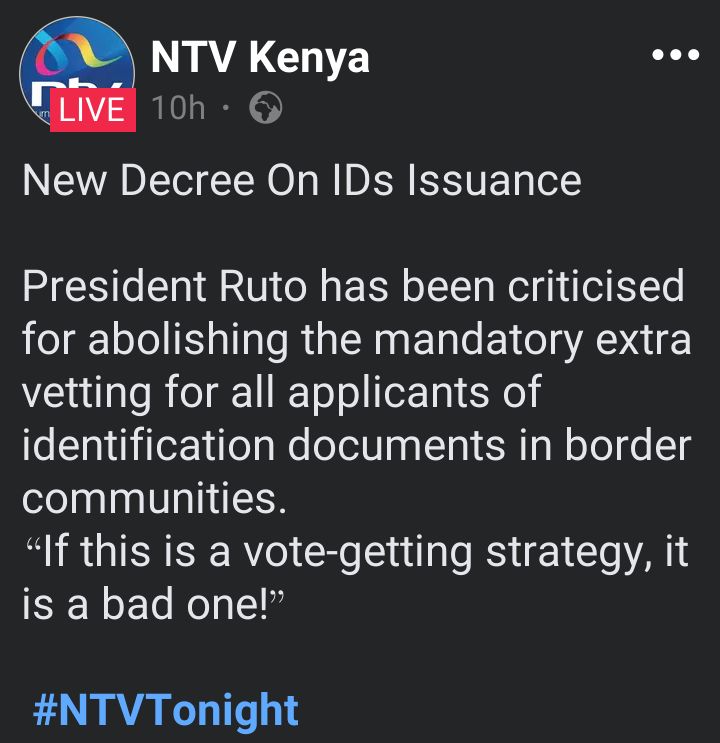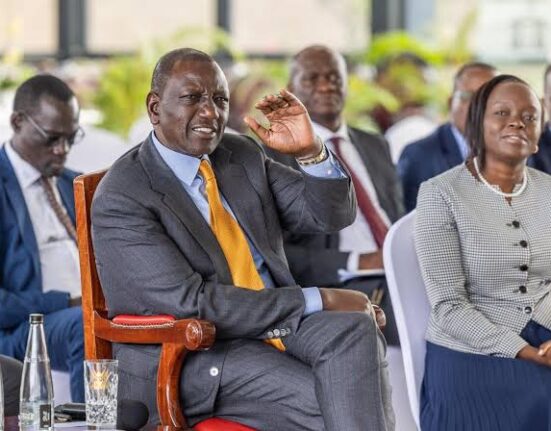President William Ruto’s recent decision to abolish the vetting process for North Eastern residents seeking national ID cards has created intense debate.

For many years, people from this region have faced additional scrutiny when applying for IDs due to security concerns and historical ties to Somalia. The vetting process was introduced as a way to prevent illegal immigrants from obtaining Kenyan citizenship.
However, Ruto’s government has now removed this requirement, claiming it is meant to promote equality and end discrimination.While some people support this decision, others see it as a political move.
As per the reports by NTV, governance expert Fanya Mambo Kinuthia has openly criticized the move, arguing that it is a scheme to manipulate the 2027 elections.
According to Kinuthia, removing vetting could lead to mass registrations that may not be legitimate. He believes that this could allow the ruling government to influence voter numbers in its favor.
Some political analysts shared this concern, suggesting that the decision is not just about inclusivity but a well-planned political strategy.
The issue has drawn mixed reactions across the country. Some leaders from North Eastern Kenya have welcomed the decision, arguing that their communities have been unfairly targeted for years. They believe that the vetting process has only served to delay the issuance of IDs and make life difficult for the people of the region.
They see Ruto’s move as a long-overdue correction of historical injustices. On the other hand, critics warn that without proper safeguards, this policy could lead to serious consequences, including the risk of non-citizens gaining access to Kenyan documents and voting rights.
As the 2027 elections draw closer, this policy change is likely to remain a hot topic in national discussions.
Kinuthia has urged Kenyans to be vigilant, warning that any attempt to manipulate voter registration could affect the credibility of the elections. He insists that transparency must be maintained to prevent any form of electoral malpractice.
The government has defended its decision, dismissing claims of political motives. Officials argue that every Kenyan has a right to an ID and that the vetting process was unfairly targeting specific communities.
They insist that the move is part of a broader plan to ensure all citizens have equal access to government services. However, with concerns growing over the potential misuse of this policy, the debate is unlikely to end soon.
Both sides will continue to push their arguments, and the true impact of the decision may only be seen in the lead-up to the 2027 elections.












Leave feedback about this